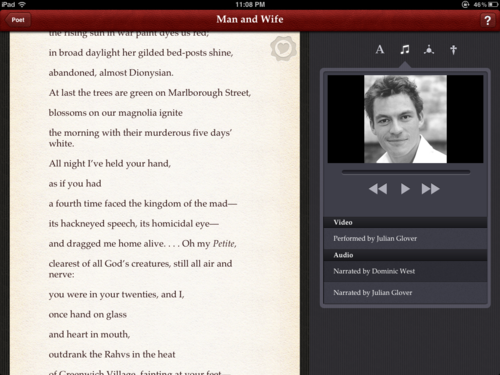
Words That Burn, a poetry app, includes audio and video from the late writer Josephine Hart’s Poetry Hour at the British Library. Beginning in 2004, Hart devoted an evening each month to a poet or two, “introducing and setting their poems in the context of their life,” and staging readings of the work from actors like Dominic West, Harold Pinter and Elizabeth McGovern.
The idea, Hart said, was that understanding “‘the life and philosophy of the poet illuminates the poetry,” which “readings by some of our finest actors then ignite.” In a video introduction, Hart contends that poetry is “the highest form of language, without a doubt.”
Words That Burn features 15 poets, and many more pairings: Dominic West reads Percy Shelley and Robert Lowell; Juliet Stevenson reads Emily Dickinson; Ralph Fiennes reads W.H. Auden. Harriet Walter reads Sylvia Plath; Charles Dance reads Elizabeth Bishop; Elizabeth McGovern reads Lowell and Marianne Moore; and so on. And the app is free, created by the Josephine Hart Poetry Foundation in her memory.
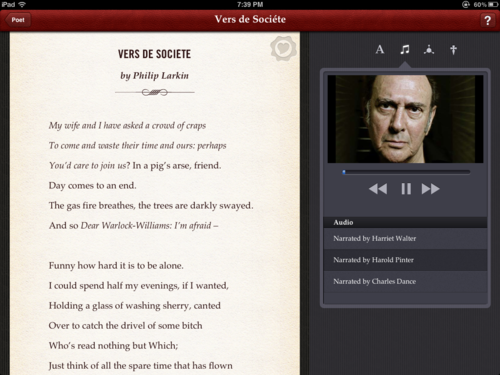
Alongside each recording, the text of the poem appears. Occasionally, while reciting, an actor will add or modify a word, changing the meaning of the text slightly, causing the listener to reflect on the difference between the original and what has been spoken. Some read quickly and brusquely, others languorously.
Dominic West inserts an extra “I” in Lowell’s “Man and Wife.” Harold Pinter is all force delivering Philip Larkin’s “Vers de Sociéte.”
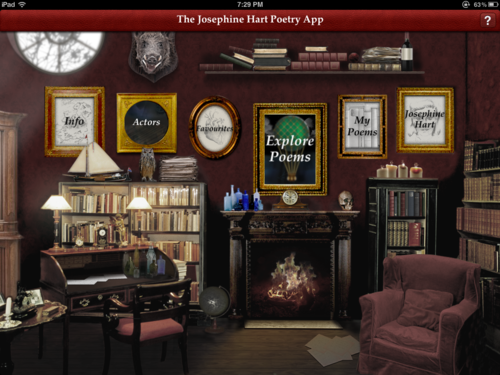
Outside the simple poetry layouts, the graphics are both wonderful and ridiculous. The main navigation screen, presented as a library, features a crackling fire, mounted animal head, and ornate gold portrait frames filled with an overlarge italicized font.
The aesthetic of this room powerfully calls to mind a strange sugar plantation whodunit game that I played in the early ’90s. Other aspects of the design are more evocative of New Yorker caricatures or Monty Python.
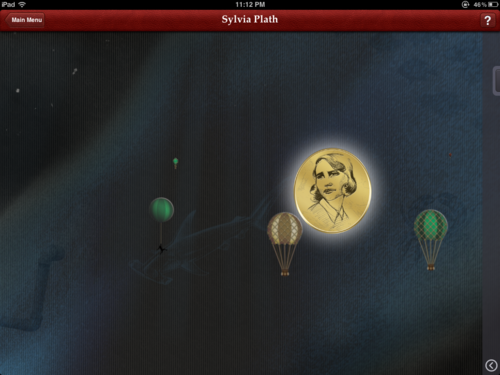
Getting around can be tricky. Move a balloon to the center of the screen and click just once on it to select a poem. Make sure not to confuse the app into thinking you want to read the poet’s or actor’s bio yet again. I would provide more guidance here, but I don’t want to mislead you. I still get lost, myself.
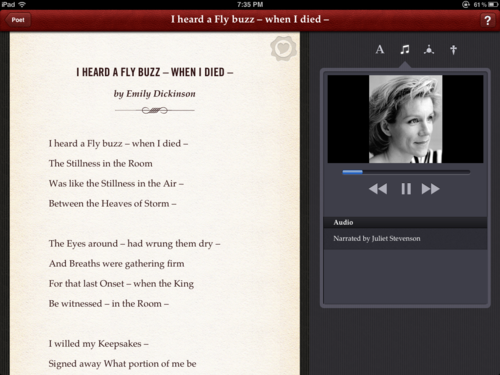
Juliet Stevenson’s rendition of “I Heard a Fly Buzz — When I Died—” is particularly lovely — slow and melodious, with pauses where I didn’t expect them, underscoring the gravity of Dickinson’s verse in a whole new way.
Hart herself, as the critic Emma Garman has said, “believed in three major destructive powers: erotic obsession, grief and envy. In her six novels, she anatomized each with an unflinching boldness that was, and remains, unparalleled.” The poetry showcased here tends to reflect those and other dark preoccupations.




Shares